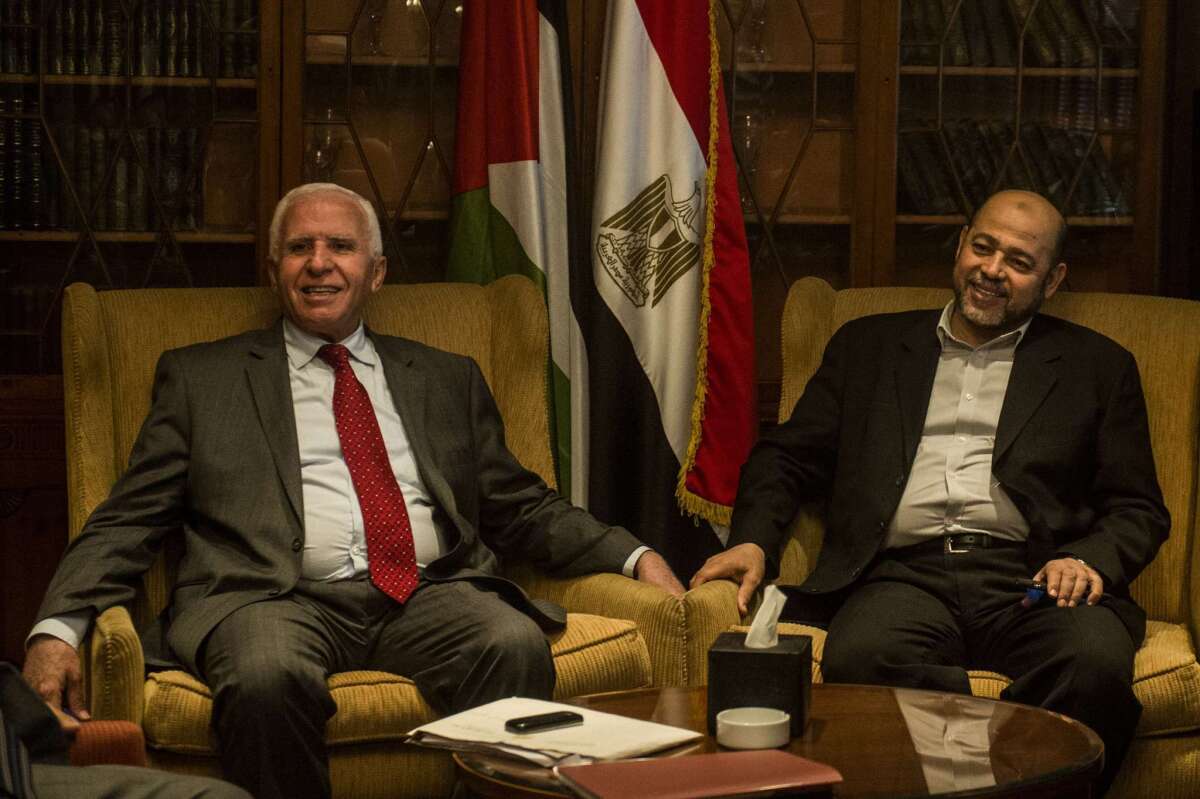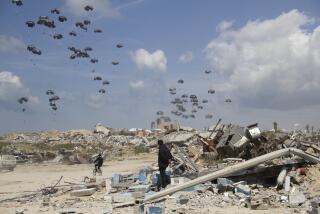Hamas and Fatah reach accord on sharing power in Gaza

The Islamist movement Hamas has agreed to share power in the Gaza Strip with the more moderate and secular Fatah faction, representatives from the two sides said at a news conference in the Egyptian capital on Thursday.
Hamas forcibly ejected its rival Fatah from Gaza in 2007 and has ruled the seaside enclave since then. But in the wake of the 50-day summer war in Gaza that was halted with a cease-fire a month ago, it had become clear that neither Israel nor the international community was willing to proceed with rebuilding the war-battered region with Hamas in sole charge.
The two factions have been taking part in reconciliation talks held parallel to indirect negotiations between Israel and the Palestinians in Cairo. Israeli participation in the overall talks is in hiatus due to the two-day New Year holiday, which ends Friday night.
The accord, vague in many of its particulars, was announced on the eve of Palestinian Authority President Mahmoud Abbas’ address to the U.N. General Assembly. Abbas was expected to call for an end to the Israeli-Palestinian conflict and the establishment of an independent Palestinian state in the West Bank, Gaza and east Jerusalem within three years.
Under the agreement, a technocratic “conciliation” government would oversee Gaza, including the crossing points in and out of the territory, said Moussa Abu Marzouk, senior Hamas representative at the Cairo talks.
The enclave is bordered by Israel to the north and east and Egypt to the south. Security at the crossings has been a key concern for Israel and Egypt, which do not want border posts manned by Hamas.
Abu Marzouk and Azzam Ahmad, who led his Fatah faction’s delegation to the Cairo talks, said the new arrangement would help pave the way for badly needed construction materials to be brought into Gaza. Because Hamas previously used tons of imported cement to construct “attack tunnels” leading into Israel, the government of Prime Minister Benjamin Netanyahu has demanded stringent security measures at the crossings.
The United Nations is expected to help monitor the import of construction materials and other goods.
The agreement also stipulates that more than 40,000 Hamas-hired government workers in Gaza will continue to carry out their duties, Abu Marzouk said, but there was no immediate word on when the West Bank-based Palestinian Authority would resume paying their salaries. A committee has been set up to oversee the vetting of Hamas hires, Palestinian officials said.
Hamas and Fatah in June had formed a government of nonpartisan technocrats that was supposed to run both the West Bank and Gaza, but the fierce conflict that erupted in early July derailed those plans.
The war, the third in Gaza in six years, killed more than 2,100 Palestinians, most of them civilians, according to the United Nations. Seventy-two people, 66 of them soldiers, died on the Israeli side. Hamas and affiliated militants fired thousands of rockets into Israel, which responded with intensive bombardment of the seaside strip.
Whole neighborhoods in Gaza were left in ruins by airstrikes aimed at destroying Hamas rockets and launching sites, together with Hamas-built infiltration tunnels running under densely populated neighborhoods. More than 10,000 Palestinian homes were destroyed, together with several large high-rise buildings and much of the already fragile infrastructure in the territory.
A donors conference is to convene Oct. 12 in Cairo on the reconstruction of Gaza, where damage estimates have been put at a minimum of $4 billion.
Abukhater is a special correspondent. Special correspondent Amro Hassan in Cairo contributed to this report.
Follow @laurakingLAT on Twitter for news out of the Middle East
More to Read
Start your day right
Sign up for Essential California for news, features and recommendations from the L.A. Times and beyond in your inbox six days a week.
You may occasionally receive promotional content from the Los Angeles Times.






